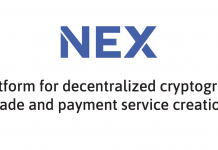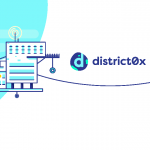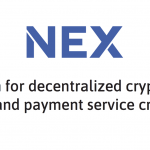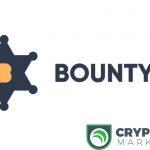AppCoins ICO Key Dates.
Presale Date: 6th November 2017-20th November 2017.
Public sale Date: 13th December, 2017- 15th January 2017.
AppCoins ICO Overview.
AppCoins ICO is a project that seeks to build an open and distributed protocol for App Stores. The protocol will drastically improve and speed up advertising, in-app billing and app approvals, using blockchain and smart contracts technology.
- In advertising, the protocol guarantees not only that the users install apps but that they pay attention to it during at least 2 minutes (Cost Per Attention - CPAt). The value invested by the developer in CPAt is then used to award the user with AppCoin tokens for their attention. These AppCoin tokens are stored in user’s wallets.
- In App Purchase transactions will grow because users can make purchases directly, using their earned AppCoins or by purchasing them through various payment methods. Financial transactions are registered in the blockchain and later used to detect double spending and to guarantee user authenticity.
- App approvals are made universal and more transparent through a developer reputation system. The reputation is tied to the financial transactions on the public ledger and is auditable. A dispute system will be created so that AppCoin owners can open a ranking for developers.
Problems being solved:
- The central authorities behind the app stores reap a disproportional high share of the created revenue in the smartphone value chain.
- Centralization also stifles competition and innovation. Apps are commonly censored if they compete with the app store owner’s economic interests.[1]
- Risk of fake person which consists of the impression of the ad and later installation being presented to a non-real person (bot…) with the purpose of deluding the advertiser.
- Risk of double attribution whereby there is a possibility of the same user to count twice as a conversion, leading the developer to pay two times what was due.
- Risk of no attention which consists in the user installing the app that is being advertised but paying no attention to it.
- Risk of data leak which consists in the information regarding the user being leaked to third-parties for advertising purposes.
- Risk of default which consists in the developer creating a campaign but not having enough funds to pay the conversions that are generated in that campaign, leading to him not paying the due amount.
- Risk of repudiation which happens when the developer does not recognize the installation, failing to attribute the conversion to the publisher. The attribution is generally monitored by tracking platforms like AppsFlyer, Adjust or Rodin that have multiple variables that can be changed by the developer to define what it considers a real attribution.
- The number of users with a credit card loaded in the store is still a minority.
- Risk of digital goods lost may happen when a user buys a digital good inside the game or app but it is not delivered. Often, the user does not have a way to recover the payment or claim the digital good.
- Risk of double payment occurs when the user pays twice for the same in-app item purchase. Also in this case, the user may not have a proof that they paid twice.
- Risk of digital items cloning when the user is able to duplicate and transfer the digital good to another user, leading to losses for the developer that charge once for a digital good that is used twice.
- Risk of malware is the possibility of an app or game submitted to the app store being infected with a virus or malware that steals data or damages the user’s device. [2]
- Risk of censorship when an app store blocks the publishing of an app or game based on political, religious or social factors that are subjective and totally unrelated with technical aspects.
Solutions.
- To prevent fraud by (fake) users several mechanisms will be used such as setting a lower limit, e.g. one install a day and three per week for unknown users, preventing cashing out of tokens. I.e. the user has to use the AppCoin tokens for in-app purchases.
- To deal with the risk of attention, a client-side method, running in the smartphone’s untrusted environment, will be used to register that a user is paying attention to an app (installed from an app store) for a certain amount of time. Once the necessary requirements (such as the app being in foreground, or the device screen being on) are met, a proof-of-attention (PoA) is issued using through a server-side platform and stored in the blockchain.
This also tackles the risk of repudiation since developers can claim that a certain user did not actually do the required action to be given the attribution, i.e. that either the app store, the user or both are being dishonest.
- There is a wallet that contains the budget of the created campaign, which is meant to lock the budget, addressing the risk of default by the developer. To address the same risk, there is also a wallet that will temporarily store the value of the impression, to make sure that if the attribution occurs within a certain time, i.e. the user installs and opens the app within a certain time interval, there are funds available to pay for the conversion.
- To prevent leakage of user data, the protocol does not expose any sensitive user information at any time and interaction with app stores. The only information that can be seen by others are the wallet addresses when a transaction occurs.
- To avoid the risk of malware, the protocol attributes a reputation level to the developers as “Trusted”, “Unknown” or “Critical” according to their track record of transactions in the blockchain. This is then extended to all their apps and across different app stores.
AppCoins ICO Review.
1. Concept.
Industry: App economy
Similar projects: Mobius, Google playstore and Apple playstore
How is it different from other projects in the space?
- You can use AppCoins across all the app stores that support it.
- If a user clicks in an Ad, installs the app and gives two minutes of attention, he can earn coins to spend inside apps and games.
Fees being charged: The user has to pay fees on each Ether deposit to his account with App Stores and on checking out, i.e. settling his Raiden payment channel. Further fees may be the taxation done by the App Stores used to pay for their infrastructure.
VC Investors: Yes, during presale.
Market statistics:
- The number of smartphone users is forecasted to grow from 2.6 billion in 2017 to nearly 4 billion by 2020 [3, 4].
- 36% of the world’s population is projected to use a smartphone by 2018.
- The gross revenue of the entire mobile ecosystem was estimated to be worth +US$50 billion in 2016, growing to +US$88 billion in 2017, while the mobile app market is forecasted to reach US$100 billion worldwide by 2020 [5].
- the annual revenue of the third party app stores matches Google Play’s in 2017[6]
- AppCoins ICO Team.
Names, pictures and even links to social profiles like LinkedIn and Twitter: Yes
Founders have credentials in the area they are venturing into. Yes
Members who have already completed successful projects in the field of blockchain: No
Members experienced in blockchain: Yes
3. MVP.
Any previous activity related to the project: The AppCoins power app economy network will leverage on existing 200 million annual unique active users of the Aptoide app store.
Previous app/product: Aptoide app store.
Actual alpha, beta etc. available: No
Working product integrated with token: No
Partners: Indorse
- Blockchain Leverages.
GitHub presence: Present
Tokens: AppCoin ERC20 token will be used by the developers to advertise their Apps to the users. From every advertising investment inside the app store, 85% goes to the user. The user has to use those coins to buy items (in-app purchase) inside the apps and games, generating the return of the investment to the developers.
Smart contracts: Yes
Middleman being cut out: Revenue shares are redistributed away from unnecessary intermediaries to end-users and developers; to enforce payments between the developer and the other parties, which are the user, the app store and the OEM, the entirety of the funds that the developer wants to put available for the campaign is locked in a different wallet, which is where the smart contract for the campaign will be running.
Decentralization: The process of judging developers will be decentralized to allow users to punish dishonest developers who deliver apps with malware.
Transparency: Being an open protocol implemented as open source software, it gives the trust back to the industry and provides guarantees of data transparency to users.
Scalability: Raiden Network will be used whereby users deposit their valuables (preferably Ether) with the store in a payment channel using smart contracts. The same happens for developers. And from this moment on they can utilize the micro-payments within the App Infrastructure. Compared to blockchain, not all the transactions have to be stored but only the latest receipts, i.e. the latest balance for both users, must be stored instead of all transactions. This solves the problem of storing huge amounts of old transactional data that is inherent in blockchain.
Lower costs: The only fees are for opening and closing the payment channel on the blockchain. For payments over the payment channel there are no extra fees. Once it is established micro transactions are possible without further limitations.
Speed: By using direct peer-to-peer (P2P) communication, transactions can be exchanged as fast as the underlying network between the two parties will enable it.
Database: Transactions are registered in the blockchain ledger to reflect the trustworthiness and reputation of a developer; the proof-of-attention (PoA) is stored in the blockchain.
Encryption: The partial anonymity of users is accomplished by using hash functions (like SHA256) in their stored fingerprints.
- AppCoins ICO Structure.
AppCoins ICO Timeframe: 6th November 2017-15th January 2017
Popularity: High
Whitelist present: Only for presale
KYC required: Yes for public sale.
Banned entities: N/A
Smart contracts already audited: N/A
Exchanges: N/A
Escrow: Yes
Token scarcity: 450M APPC
Founder/Team Token percentage (Should be less than 20-25%): 10%
Securities Token: No
Buyback and burn: No
Utility token: Yes
Use of Fiat: Yes
Coin staking: The tokens awarded to users can only be used for in-app purchases.
Vesting of team member tokens: Yes, locked for 12 months.
Locking of presale tokens: No
Unsold tokens burnt: Yes
Presale token percentage: 20%
Timeline Bonus: 30%
Whale Bonus: None
Presale Hard cap amount: N/A
Presale Soft cap amount: N/A
Presale progress: Over 20,235,330 AppCoins were bought by 808 investors in the pre-sale. This represents 20% of presale tokens. $1.8M was raised from the Presale.
Minimum amount: $100
Individual cap: $5000
Public sale token percentage: 20%
Timeline Bonus: None
Whale Bonus: None
Public sale hard cap amount: N/A
Public sale Soft cap amount: N/A
Public sale Progress: Not started
Minimum amount: $70
Individual cap: None
Total ICO Token percentage (Should be 70-80%): 40%
Total ICO Hard cap: $15M
Total ICO Soft cap: $2.5M
Base ICO Token price: $0.1
ICO Progress: Presale is over
Market cap (ICO Price x circulating supply: 18M
Market cap of projects in same field: N/A
AppCoins ICO Smart contract Address: https://etherscan.io/token/0x1a7a8bd9106f2b8d977e08582dc7d24c723ab0db
Get the overall score of the AppCoins ICO as well as other ICOs here
References:
[2] http://phandroid.com/2017/09/18/android-malware-google-play/
[4] https://www.statista.com/statistics/330695/number-of-smartphone-users-worldwide/
[5] https://www.braze.com/blog/in-app-purchase-stats/
[6] https://www.appannie.com/en/insights/market-data/app-store-revenue-forecast-139-billion-2021/























